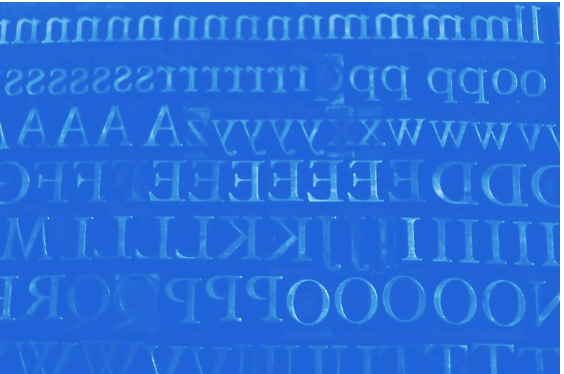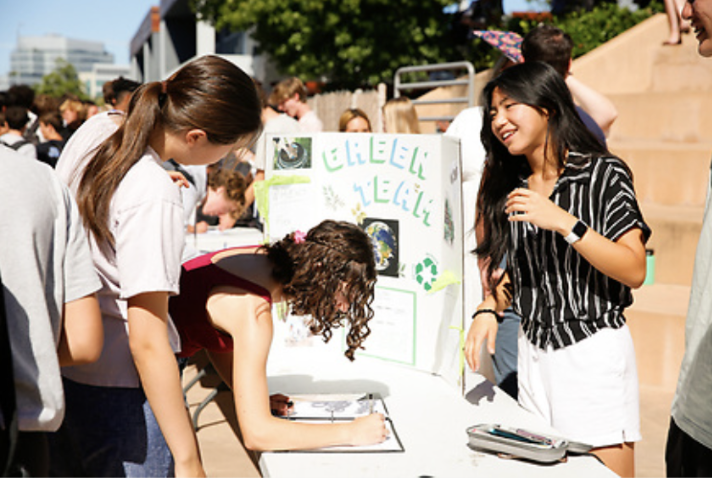These days, we hear a lot about sustainability. However, there are still so many unconsidered simple strategies we can apply to make the planet healthier. Some practices are so deeply built into our daily lives that it may seem difficult to change them. But, after reading these facts, I hope you’ll gain useful insight into how we can help humanity become more sustainable.
- Change your font.
The Internet is the hub for so many of our activities, and font choices are essential. Perhaps you are creating a flier to advertise your small business, typing an analytical essay for class, or making “coupons” to give to your family members for the holidays. Whatever it is, font is essential. The fonts we use convey our tone and the kind of impression we are trying to make. And, it turns out, some fonts are more sustainable than others when we print our creations.
Paper and ink consumption can be reduced by certain fonts based on these criteria: the font, compared to other fonts at the same point size, has a smaller width, is thinner, is sans-serif (without tails, flourishes, etc.), and has a smaller preset kerning (the gap between each letter). Using a font with these characteristics will reduce the amount of ink used and space taken up by the font, and will therefore also reduce paper consumption.
So, which fonts are best? In comparison to Arial, the default font, Times New Roman, Calibri, and Century Gothic are better. Century Gothic is one of the most efficient, because of its thin lines and therefore reduced ink usage. However, it is large and wide, making it less ideal in terms of paper usage, but this can change if you simply make the font smaller. Garamond is also a great choice, as well as Courier, or Courier New 12. Eco-Fonts are also specifically designed to be environmentally friendly and economical. These fonts have many small holes in them, which cannot be seen at point sizes, but are there because ink naturally bleeds on paper, filling the holes. That being said, make sure you print with a purpose!
- Delete old emails and unsubscribe from mailing lists you don’t care about.
We all know that emails can be annoying, especially when all they do is take up space. Mailing lists, too, even if you consciously signed up for them, can be incredibly redundant and uninformative. Deleting emails and unsubscribing is as easy as clicking a button or two. Despite this, an issue among people is the perpetual buildup of emails, until thousands have amassed, unread, in a person’s inbox. It’s easy to let this happen, but knowing about its environmental implications might convince you to start deleting and unsubscribing.
Electricity, which is required for the transfer and display of emails, is generated by fossil fuels. Since 2019, 293.6 billion emails have been sent per day, there are 3.9 billion email users, and the average American has 500 unread emails. Average spam emails contribute 0.3 grams of carbon dioxide emissions, standard emails 4 grams, and emails with attachments 50 grams. So, if each of the 3.9 billion email users deleted ten emails, that would get rid of 39,035 metric tons of carbon dioxide. As more people unsubscribe and delete, less coal is burned, and less carbon dioxide is emitted.
- Research and use natural, homemade cleansers.
Obviously, household practices like doing the dishes and laundry are essential to everyday life, but these processes can be quite wasteful. A potential sustainability plan would be to handwash clothes and dishes, but it is also safe to say that most people, including myself, have neither the time nor patience that is required to do that. This is especially true when it comes to large families with many things needing to be cleaned every day, as well as things that need special care.
Because I think it’s a stretch to ask people to hand wash things, there is another way to be more sustainable when it comes to laundry, dishwashing, and also cleaning surfaces in general. This is to research and make your own cleaners. For instance, vinegar and water mixtures are known to clean most surfaces, so you don’t have to buy multiple different types of cleaners for your floor, kitchen, shower, and any other area. Dishwashing detergents can be made using a few different methods, but it is important to pre-rinse and scrub your dishes, getting rid of larger food residues before using the machine with your homemade solution. Two options for dishwashing detergent alternatives are lemon juice and distilled white vinegar, which will help the water in your dishwasher do the job. Alternatives for laundry detergent are not very different- real lemon juice, white vinegar, and baking soda are some that are safe and effective. Again, remember to research these things and the specific amounts to add before using them.
By doing all these things, you’ll help to reduce plastic usage by not buying several different plastic-packaged cleansers, and you’ll reduce the amount of chemicals going into the water system.
- Unplug things from your outlets when you’re not using them.
This is especially true when it comes to charging our devices. We all typically need to charge our phones, laptops, or iPads once or twice a day. It is very convenient to just leave the charger in, even if your device is finished or is not being charged. However, when the charger, with or without a device, is left idle, energy is still being used. It also harms your device’s battery quality! A potential solution to this is smart outlets and/or smart plugs, which regulate the time and quantity of energy used by an outlet. Individually, these are not too expensive, but buying a whole bunch of them for multiple places in your house is. So, we should try and simply be a bit more conscious when it comes to our charging habits.
Of course, this also applies to other household appliances that are plugged into outlets but only used part of the time, such as lamps and televisions. According to the Natural Resources Defense Council, $19 billion across the US is spent on energy employed by plugged-in devices that aren’t being used, which translates into 44 million tons of carbon dioxide, or 4.6% of America’s total residential electricity generation. It only takes a few seconds to unplug something when you’re not using it, so why not do it?
- Use cold water.
Using cold water may never be the most comfortable, but it is incredibly sustainable. Approximately, water heating accounts for 18% of energy use in a home and is usually the home’s second largest energy expense. So, cut back on hot water as much as possible! For instance, doing your laundry on a cold setting reduces energy but also conserves the vibrancy of your clothing.
Also, using cold water on your body has a good amount of health benefits- it helps your skin, immune system, and metabolism. Also, it’s quite refreshing and a great way to wake yourself up if you’re sleep-deprived and searching for a non-caffeinated solution. So, consider washing your face with cold water and taking cold showers. If it’s too much all at once, you can start with hot water and gradually make it colder.
Hopefully, you’re now more knowledgeable about the easy ways to help the Earth. They may not seem like much, but if we all start embracing these more sustainable living styles, our environment will get a little healthier each day.
Sources:
http://thegoodplanet.org/2020/06/02/how-you-can-save-our-planet-by-deleting-emails/
https://www.conserve-energy-future.com/15-ideas-for-sustainable-living.php
https://moveforhunger.org/blog/easy-ways-be-more-sustainable-2023
https://www.energy.gov/energysaver/water-heating
https://branchbasics.com/blogs/cleaning/natural-alternatives-to-dish-soap
https://superbee.me/laundry-detergent-alternatives/
https://www.treehugger.com/should-i-unplug-my-appliances-and-if-so-will-i-save-money-4864312




